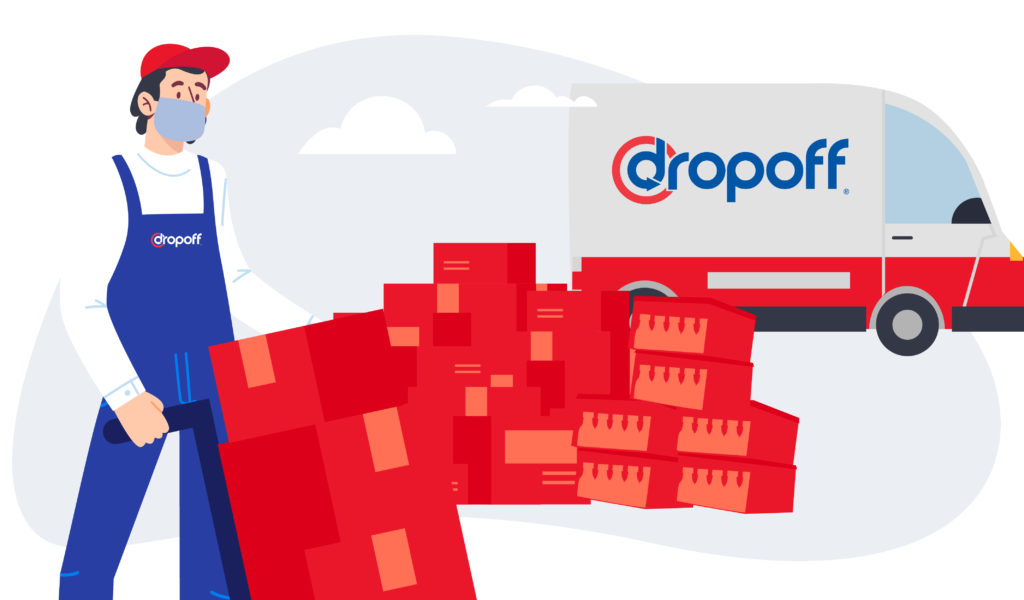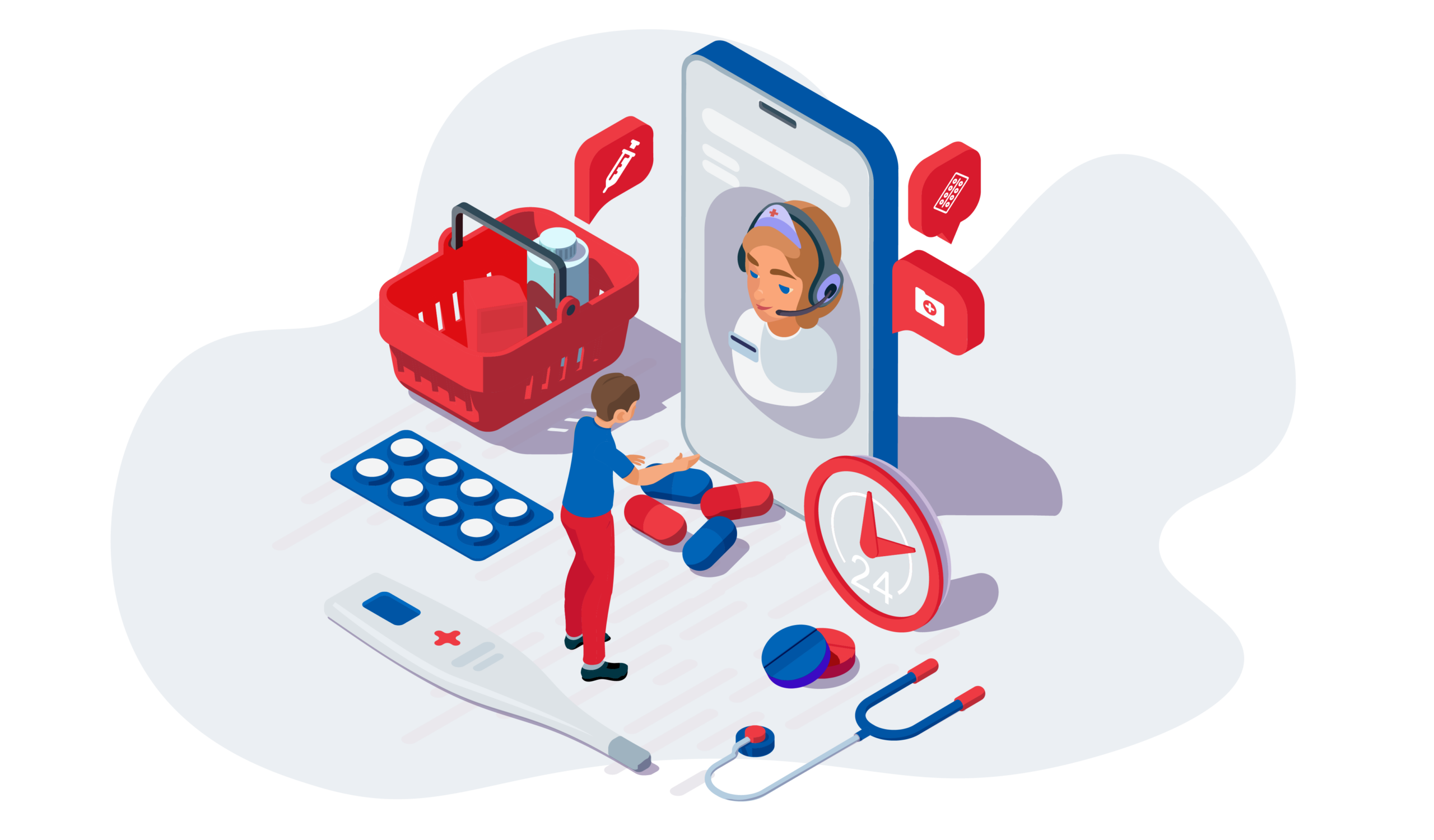The State of Medical Logistics in 2022: What to Expect

It’s 2022, and the state of medical logistics is changing rapidly. Medical logistics is evolving faster than ever with new technologies and solutions. This article breaks down what to expect in the coming years!
What Is Medical Logistics?
Medical logistics is the process of organizing and delivering medical supplies. Healthcare providers require medical supplies such as surgical supplies, medicines, medical devices, and other equipment.
The Main Challenges in Medical Logistics

Zion Market Research reports that the global market for medical logistics services is currently worth $21.82 billion and is projected to grow to $31.51 billion by 2026.
The transportation of medical supplies is a complex process that takes many factors into consideration. However, the accuracy and speed of the delivery process are paramount when it comes to saving lives. In healthcare logistics, speed and same-day delivery are vital for patient care.
Moreover, companies must use the latest technologies, understand regulations, and know the unique needs of each shipment.
Here are four challenges medical logistics face and ways the logistics industry is finding solutions:
1. Logistics Security
Today, technologies like blockchain help ensure the security of shipments around the world. With blockchain, a unique code is imprinted on a shipment, allowing it to be tracked and traced throughout shipping.
Further, the level of security and tracking provided by blockchain technology is vital as it helps regulators and companies determine a drug product’s authenticity, identity, and location.
2. New Findings in Medicine
Nowadays, doctors prescribe medicines based on the patient’s condition and other specific factors, like age, gender, and medical history. Before, doctors would prescribe medicines based on the patient’s condition only.
In recent years, there has been an increase in therapies specifically designed for patients based on the genetic reason for their condition. As a result, patients have been receiving better medical care.
However, medications becoming more personalized presents a challenge for the logistics industry, because companies that make drugs often need to send them directly to patients.
Furthermore, logistics companies must have close relationships with their customers and offer flexible medical logistics solutions.
3. Climate Control
Medical products are unique because they must be stored in a climate-controlled environment. Extreme temperatures impact the effectiveness of both solid and liquid medicines and medical technology products.
Therefore, ensure your medical courier’s vehicle is equipped with the necessary technology to maintain the right temperature. Otherwise, you should consider looking for a new medical courier service provider.
Traditionally, shippers only took the temperature of products at loading points – providing very little information. During transportation, customers often lack temperature data. If temperatures aren’t suitable and not discovered until delivery, patients will not get the medicine they need.
Today, many technologies allow shippers to track real-time temperature data, including smart packing and wireless and Bluetooth technologies.
4. Customs and Documentation
The global trade market is becoming increasingly uncertain, making it harder to deliver medical supplies across borders. As a result, it is becoming more difficult to source medical supplies from abroad.
These are just a few challenges in the medical delivery space.
What Does Medical Logistics Cover?

A medical courier service transports and delivers medical supplies.
Medical supplies delivered by medical couriers include:
- Healthcare equipment and devices
- Specimens
- Medical records
- Samples
Many medical logistics companies ship and deliver medical equipment, such as X-ray scanners and magnetic resonance imaging equipment. They also transport drugs, pills, blood, plasma, semen, urine, stool, and red blood cells. Medical care supplies, like organs and blood, are also delivered through the mail.
Who Uses Medical Logistics Services Most?
There are many different medical equipment logistics services available, and each type has its own set of users.
Businesses that use medical supply logistics services include:
- Hospitals
- Clinics
- Pharmacies
- Medical laboratories
- Medical supply companies
- Healthcare facilities
- Blood and infusion centers
If you are looking for a medical courier service, Dropoff provides real-time tracking technology and API integration to ensure that medicine shipments are delivered securely and on time.
Medical Logistics Companies
Whether you need transportation for medical equipment, medications, or even patients, a medical logistics company is the expert to turn to.
These companies provide an essential service by ensuring that vital medical supplies reach their destination safely.
- SEKO Logistics – SEKO Logistics specializes in transportation, logistics, forwarding, and warehousing.
- Dropoff – Dropoff comprises experts in healthcare logistics, offering custom solutions and nationwide coverage to support any medical business.
- C.H. Robinson – This company offers transportation management and warehousing.
- CEVA Logistics – CEVA Logistics offers both freight management and contract logistics.
- Yusen Logistics – Yusen Logistics creates efficient and cost-effective shipping solutions for businesses.
Interested in hiring medical logistics courier services?
Here is a guide on current medical courier service rates.
The Current Trends in Medical Logistics

Here are some of the most current trends in medical product logistics:
1. Availability of Integrated Services
Today, cold chain service providers offer integrated services, including transportation and warehousing for the global healthcare logistics market, including disaster recovery services.
Basically, these services help customers keep track of their shipments and communicate with everyone in the supply chain. Some vendors also offer training sessions that teach people how to manage inventories, store items, and ship them.
2. New Methods of Medical Product Delivery and Healthcare Services
Vendors in the global healthcare logistics market have changed their transportation mode from air to sea to deliver medicines/drugs. One of the most significant benefits is that it reduces costs by 70 to 80 percent.
Many new online services help deliver medicines directly to patients. These services include e-health records, remote monitoring, e-prescribing, and mobile health applications.
Additionally, medical delivery companies also ensure that their couriers are HIPAA-compliant when shipping medical products.
3. Cost Management
As more healthcare organizations move away from a traditional fee-for-service model and toward a value-based care model, they are proactively trying to cut costs. Organizational profit is then protected.
Moreover, healthcare companies need to be equipped with analytics tools and have no blind spots in their data. With a complete picture of their spending, healthcare logistics managers are able to quickly identify waste and increase efficiency.
4. Adaptability
When the global pandemic hit, it disrupted many supply chains. As a result, the delivery of medicines and personal protective equipment were affected. Delays are never reasonable, but they instantly put lives at risk in healthcare. That’s why supply chain managers are trained to find timely solutions when the worst happens.
Today, healthcare supply chain managers use advanced data analytics and intelligence to predict where their vulnerabilities are.
The Future of Medical Logistics

Medical logistics aims to provide quick and secure deliveries while ensuring that patients receive the best possible care.
Here are the two main drivers that shape the future of medical logistics:
1. Personalized Medicine
The COVID-19 pandemic has put a lot of stress on the global medical supply chain. There have been shortages of certain medical supplies because of the high demand. Learning to be flexible in the face of a pandemic is only a first step in the long-term path to recovery. It will involve personalized care and solutions for thousands of symptoms across the millions affected and recovering.
A few reasons why personalized medicine is important:
- Better disease prevention
- More accurate diagnosis of the disease
Based on each patient’s unique genetic makeup, personalized medicine is beginning to overcome traditional medicine’s limitations. Its importance will only increase in the future.
2. Digitization Is More Essential Than Ever
The development of digitization in medical logistics is vital for the future.
Digitization allows for close monitoring of medical goods in transit. Medical couriers are able to plan for necessary intervention if there are unexpected delays or temperature fluctuations. As data is acquired and managed with blockchain technology, you can order more accurately and ship faster.
As a result, warehouses will likely have less stock, which means less waste. Goods will be able to get to their destination faster.
Bringing personalized medicine to the mainstream market is a difficult task requiring a lot of skill. There must be firm control over the process and usage of advanced technology.
Bottom Line
The takeaway? Medical logistics is constantly evolving, and it’s essential to stay up-to-date on the latest changes. At Dropoff, we pride ourselves on being at the forefront of this ever-changing industry to continue delivering world-class service to our customers.
But don’t take our word for it; learn more in our guide on how to choose a medical courier to ensure the deliveries for your medical business are being done right.
If you want to learn more about how medical logistics work or how Dropoff will help your business, talk with one of our experts.
FAQs on Medical Logistics
1. What is medical logistics?
Medical logistics is the process of organizing and delivering medical supplies. Healthcare providers require medical supplies such as surgical supplies, medicines, medical devices, and other equipment.
2. What is a medical logistics specialist?
Medical logistics specialists are responsible for moving medical supplies and equipment. They work with different items, like medicines, vaccines, surgical instruments, and diagnostic equipment. They must ensure these items stay at specific temperatures.
Medical logistics specialists also help plan shipments of medical items. Deciding which items should be shipped together and how they should be packaged is a part of shipment planning.
3. What do the functions of medical logistics include?
Medical logistics refers to getting medical supplies to the right place at the right time. The desired outcome is simply to help the healthcare industry reduce costs.






